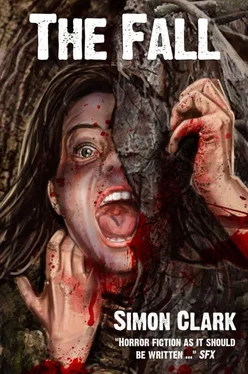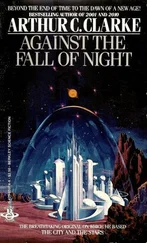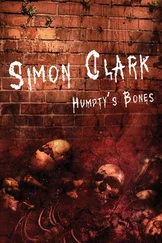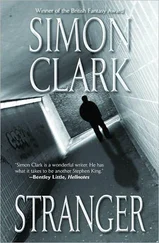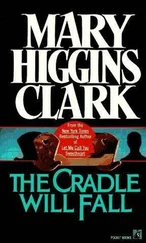They sat in the tap room of the inn that stood at the junction of the dirt track leading to the amphitheatre.
Sam sipped the beer. It was flat, warm and tasted particularly bitter. In fact, it was very much like every other British beer he’d tried before. He was getting a taste for it now, but he didn’t feel competent enough to say whether it was great beer or if it tasted like something a tom-cat had passed.
‘Not too unpleasant,’ Carswell said. Which, coming from him, Sam realised, was probably high praise indeed.
Jud licked his lips before taking another swallow. ‘I don’t know,’ he said, ‘I imagined something full-bodied, richer, stronger.’
‘Remember,’ Carswell said, sipping the beer, ‘this is the austere post-war period, with rationing and belt-tightening still much in evidence. Now, would anyone like anything to eat?’
Sam glanced at Jud as Carswell studied a chalked menu that offered pork pie, sandwiches and something called Rabbit Bake. Why was Carswell suddenly on a charm offensive? He seemed to have completely changed, mood-wise, on the 15-minute run back from town. Why was he buying them drinks, inviting them to eat? For heaven’s sake, he’d even concealed that sour expression and was actually being charming.
Sam realised from the expression on his face that the same questions were going through Jud’s mind.
Needless to say, he knew the maxim, ‘There’s no such thing as a free lunch.’ And he was positive that Carswell would do nothing for anybody unless he’d identified a profitable return for himself. So what was Carswell’s game? What did he want from them?
‘I think I’ll take the pork pie,’ Carswell said. ‘Anyone like to join me?’
Sam and Jud shook their heads and thanked him.
‘No? All right,’ he said mildly. ‘Anyone for another beer? No? Just say when you’re ready for more. I still have a fair amount of 1940s currency left. There’s no point in allowing it go to waste, is there? Now, you know, this beer is starting to grow on me. More hoppy than the ones I’m familiar with. What do you think?’
While Jud and Carswell chatted about the beer, Sam allowed his gaze to run round the pub. It didn’t look much different from other English pubs he’d visited. There was no jukebox, of course, nor any gambling machines. The chairs weren’t cushioned and the whole place looked in need of a lick or two of paint. There were half a dozen or so other people in the bar. A couple were in RAF uniform. Across the room a middle-aged couple sat at a table. They were drinking half-pints of beer while shooting glances in Sam’s direction. The woman was clearly talking about him, even holding her hand against her mouth in such a secretive way it was nothing less than theatrical. The man wore a thick moustache and black-framed glasses.
Sam looked down at his own light-coloured chinos, loafers and open-necked cotton shirt that was the colour of a well-ripened lemon. Well, the clothes stood out as much as the Range Rover, which they’d taken the precaution of parking down the track behind a clump of bushes.
After a few moments the secretive couple drank up and left, the woman still looking him up and down as if she couldn’t quite take in the clothes he was wearing.
In the meantime Carswell had been to the bar again, his own white linen suit attracting curious glances from the RAF men.
When Carswell had returned with the drinks he said, for no real reason, ‘I hated my father, you know. The man was either drunk or chasing women. I don’t know why my mother put up with him, but whatever he did, she had an excuse. At weekends he’d stagger in at breakfast time covered with cuts and bruises, his clothes torn…’ He wiped foam from the rim of his glass, then licked his finger. ‘That wasn’t just an occasional event. It happened nearly every week. He used to get into fights, I suppose. I suspect he was actually allergic in some way to alcohol and it made him act like a madman. Anyway, this went on year after year. But one day, when I was eight years old, I asked my mother why he came home in such a state.’ Carswell leaned forward with his elbows on the table. ‘And do you know what she said?’
Sam shook his head, puzzled why Carswell was baring his soul like this.
‘She said my father was employed by the Lord Mayor of London, and that he had a very important job.’ He looked from Sam to Jud. ‘She said he was employed to fight the Devil’s serpent.’ He gave a colourless smile. ‘Can you believe that? To protect us kids from the truth – that dear old Dad was a drunk, a brawler and an adulterer – she invented that outlandish story. She told us all that this monstrous serpent of the Devil was as long as six London double-decker buses; that it would come slithering out of the Thames every weekend intent on tearing Westminster Abbey down stone by stone. But every week my father would be standing on the Abbey steps, waiting for it. The monster serpent would attack, and dear old Dad would fight it all night until dawn; that’s when, she said, the serpent’s power would fade as the sun rose. Then it would go slithering back to the river, where it would lurk until next time.’ Carswell chuckled, but his eyes were glazed and fixed as he remembered. ‘And, of course, my father would always be there the next weekend: waiting to do battle with Old Nick’s serpent. Some part-time job, eh?’
‘Your mother wanted to protect you.’ Jud took a sip of beer. ‘It’s important for young children to respect their parents. Even to see them as superhuman or heroes.’
‘Well, I can appreciate that. But do you know what my mother did to drive the story home – perhaps to give it that little extra veneer of truth? She told me that one day I’d work for the Lord Mayor, too. That when my father retired, it would be my turn to stand guard on the Abbey steps, and to fight that big old serpent with all my might.’ His voice rose louder. ‘So that was to be my destiny. To stagger home every weekend – dishevelled, dirty, my eyes blackened, blood dripping from my nose onto the kitchen lino, because, God, I remember that as clear as day. Seeing those drips of blood leading through the kitchen, through into the hall, up the stairs to where the old bastard would collapse into bed. You know, my mother would wash him and tuck him up in bed knowing full well he’d got himself into a fight over some tart he’d picked up. He even came home with love-bites on his neck – you’d call them hickeys, Sam – he’d come home with those, and she’d call us in when he was asleep.’ His voice dropped to a rasp. ‘“Do you see those,” she’d whisper to us, “those bruises on his throat? That’s where the serpent coiled round his neck and tried to strangle him.’”
Carswell took a large swallow of beer. ‘And she drummed it into us how Dad was a hero. That we’d follow in his footsteps. That we’d fight the monster too, and, oh, how proud she would be of us all.’ He put the glass down and fixed Sam and Jud with his piercing eyes. ‘I had nightmares for years… bloody years. As soon as we could, my brother and I escaped, not just from home but from the East End altogether. My brother found his slice of paradise at the sharp end of a syringe in a hippy squat in Cornwall. I chose a different path. While my friends – well, peer group, I should say – were out on the piss in the local pubs, I educated myself by reading every book I could lay my hands on. I could read two a night. And I’d been into the City enough to realise that people with top jobs spoke with upper-crust accents, not a Cockney cor-blimey-where’s-me-trousers patois. So I taught myself to speak like an English lord, enunciating “How now, brown cow” and “The rain in Spain falls mainly in the plain” until the early hours. Consequently I ended up with an apartment in Belgravia. My brother is dead from being unlucky enough to have bought extremely pure heroin. While my father—’ He gazed at the beer glass as if it was a TV screen in which he saw his life being replayed. ‘While my father is still working for the bloody Lord Mayor of London. Still coming home with his shirt buttons torn off; still with a bloody nose. In his seventy-fifth year, too, miserable bastard.’
Читать дальше
